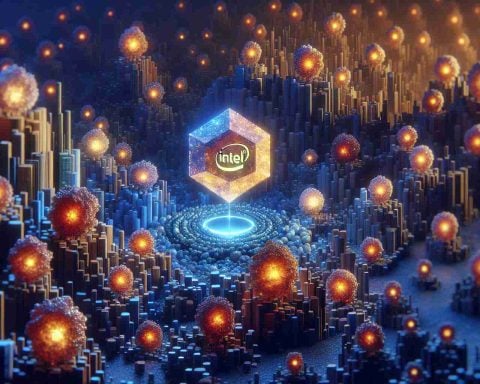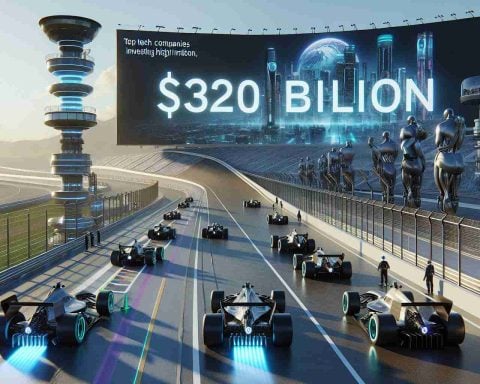In an exciting development for investors, Citi has spotlighted South Korea’s Doosan Corporation as a potential winner from the boom in Nvidia’s latest AI chip technology. Experts at the Wall Street bank predict a substantial 40% leap in Doosan’s stock value over the next year.
Doosan Positioned for Growth
Citi recently initiated coverage on Doosan, assigning a “Buy/High Risk” rating with a target price set at 330,000 Korean won ($234). The bank underscores Doosan’s strategic advantage as the exclusive supplier of “copper clad laminate” (CCL) materials for Nvidia’s forthcoming Blackwell chips. These components are critical for Nvidia’s latest graphics processing units, which are eagerly anticipated by tech giants such as OpenAI, Microsoft, and Meta. These companies require advanced chips for their AI data centers powering technologies like ChatGPT and Copilot.
Exclusive Partnership with Nvidia
Doosan’s role as the sole CCL provider means the company is well-positioned to reap benefits as Nvidia accelerates chip production. CCLs are integral to manufacturing printed circuit boards used across various electronics, from servers to smartphones. Doosan’s CCL business is operated by its subsidiary, Doosan Electronics, significantly contributing to the corporation’s revenues.
Bright Financial Prospects
Citi analysts project that Doosan could see AI-driven revenues reach 363 billion Korean won ($258 million) by 2025, boosting operating profits by 90%. Such growth prospects have already driven Doosan’s stock to new heights, tripling in value over the past year, with a current market valuation of approximately $2.5 billion.
Investors globally can tap into this opportunity through select international ETFs, making Doosan a potential hidden gem in the tech sector.
South Korea’s Doosan: Riding the AI Wave with Nvidia’s Support
A New Chapter in Doosan’s Legacy: The AI Era
While much focus has been on the potential stock value surge of South Korea’s Doosan Corporation, several other noteworthy aspects of this development warrant a closer look. This partnership between Doosan and Nvidia’s AI chip technology not only highlights the rapid advancements in technology but also underscores critical shifts in how countries like South Korea are positioning themselves within the global tech economy.
Impacts on Communities and Industries
The economic implications for local communities and broader industries extend beyond mere financial gains for Doosan. Such partnerships can transform local labor markets and boost employment rates as Doosan scales up its production to meet Nvidia’s demands. The ripple effects could be substantial, affecting small businesses and suppliers that are part of Doosan’s supply chain. In turn, this could stimulate economic growth within South Korea, fostering innovation and attracting further investments in the country’s tech sector.
The Sustainability Controversy
However, the increased production of Nvidia’s chips brings questions of sustainability to the forefront. The manufacturing of CCL materials and chip components is energy-intensive and could pose environmental challenges. As global scrutiny on environmental practices intensifies, Doosan may face pressure to implement eco-friendly initiatives. Balancing high production demands with sustainable practices might present a significant challenge, making it vital for the industry to innovate in green manufacturing technologies.
Advantages and Disadvantages
Advantages:
1. Economic Growth: Doosan’s financial health and South Korea’s economy are likely to benefit from this partnership.
2. Technological Advancement: This could mean more investment in R&D, leading to advancements in AI and electronics.
3. Geopolitical Leverage: Strengthening ties with leading tech companies like Nvidia can bolster South Korea’s position in global technology markets.
Disadvantages:
1. Environmental Concerns: Increased production can lead to significant environmental impacts if not managed sustainably.
2. Economic Dependency: Over-reliance on a single partnership or sector can pose risks if market conditions shift.
3. Market Volatility: High-risk investments like these could lead to substantial financial losses if anticipated growth does not materialize.
How Will This Affect Everyday Lives?
On a more individual level, the widespread adoption of advanced AI technologies powered by these chips could transform everyday experiences. Consumers could enjoy more intuitive AI-powered applications and services, enhancing efficiency in both personal and professional realms.
Will this AI-powered future spell progress or pose new challenges? Only time will tell. Yet, it is essential to ask whether the tech industry can rise to meet the challenges of sustainability and economic inequality that accompany such advancements.
For more insights into the intersection of technology and sustainability, visit CNBC or explore the latest developments in AI at Nvidia.






















